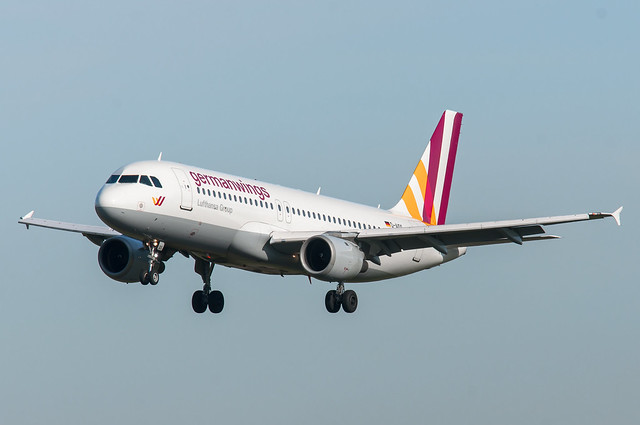It's the peak of summer season travelling. For most us who are dealing with food allergies, this can be a stressful situation as well. I heard of many families who opt not to go far from home or even out of the country because of their food allergy concerns.
In our case, if budget wasn't an issue, my family will be travelling like crazy this season. In fact, years ago, we all went as far as the Philippines and we all had a great time. Don't let food allergies interfere with your vacation trips. With a little planning, it can be an enjoyable and rewarding experience.
Our friends from Money.com.uk are very kind to share this guide to help food allergy families plan their out of the country trip. Even though the article was initially meant for those in the UK, I realized that it is also very applicable to us here in the United States.
I suggest to keep this list handy for your next vacation planning. It will save you so much time and anxiety.
Have a great summer!
- Roz
P.S. Special thanks to our friend Ella Moss who gave us the permission to repost this article. Ella has written several guides in Money.com.uk. She worked in finance and investment after college but took a step back to spend more time with her family and develop her love of writing. She now spends most of her time looking at everyday financial topics for families and individuals.
 |
| © 2014 Gerard van der Schaaf, Flickr | CC-BY | via Wylio |
10 Things To Do Before Travelling To A Different Country
1. Be prepared.
A little groundwork before you travel will hugely cut down on stress. If you have a food allergy, look into what dishes are popular in your destination - if they use your allergen frequently in cooking, find out what you'll need to avoid.
You should also find out how to contact the emergency services if anything goes wrong, as it's better to do that now than wait until it's urgent!
2. Check your insurance covers allergies
Make sure you get travel insurance that will cover an allergic reaction - not many do, and even fewer will cover anaphylactic shock. Check the terms and conditions carefully to make sure it does provide the cover you need - if you're not sure, just ask the insurer.
If you already have a policy in place, make sure that it will pay out for claims relating to an allergic reaction in case you need it too, otherwise you might need more specialist cover.
Most insurers will require you to declare an allergy if it's severe enough to require medical attention, so don't forget to do this. Failure to do so is likely to mean they won't pay out in the event of a claim and you'll have to cover the cost of any medical treatment you receive.
You'll also need to look into what your policy will pay out for - some might replace an EpiPen if you need to use it, and others might cover the cost if an ambulance is called out.
Find out whether the insurer will pay the hospital directly, or if you'd need to do this yourself and reclaim the money (if so make sure you have a credit card to hand). You'll also need to check how much excess you'd need pay towards any claims.
If you're travelling in the EU, you will need to get an EHIC card - find out more in our guide, What is the European Health Insurance Card? It's also worth finding out whether the country you're travelling to has a reciprocal health agreement with the UK. If it does, any lifesaving treatment will be free, although you may still need to pay for in patient costs so travel insurance is still a must.
3. Local knowledge about your allergy is key
It's a good idea to look into local attitudes to allergies so that you can precisely explain your own; for example, if you say you have a nut allergy in France, most people will assume this only means walnuts and not all nuts.
Be sure to be as specific as possible when you give details of your allergy, like when you order food. If allergies aren't that common in your destination then you'll need to be even more careful.
You should also look into what oils and flours are used in traditional cooking, as well as what goes into local drinks and sauces to make sure you're clued-up.
4. Prepare for the language barrier
Unless you're fluent in your destination's language (or they speak English) it can be much tougher if something goes wrong, so a little preparation is key.
Look up some key words and phrases before you travel, such as the terms for your allergies and allergens - make sure you write them down too.
Better still, note down a few sentences in the language that you can show when you order food or drink; this will ensure nothing is likely to get lost in translation! Some examples include:
- Is this food/drink safe for someone who has a severe shellfish allergy?
- I am having an allergic reaction - please call an ambulance
- Does this have wheat in it?
- I can't eat any nuts because I have a severe allergy and will go into anaphylactic shock. This includes hazelnuts, almonds, peanuts, walnuts, Brazil nuts and all other nuts including ground nuts and nut oils
Alternatively, translation cards are available from Allergy UK - these display information messages about your allergy in the language of your choice and can be worth looking at, although a search online should also give you the information you need to make your own.
If you've left it to the last minute ask if a host/ess on the airplane can help you note these down - it's really worth it.
5. Make others aware that you have an allergy
Make sure your travel companions know that you have an allergy and understand what they should do if you have an allergic reaction. If you have an EpiPen then make sure they know where you keep it and how to use it and what your travel insurance claims line is so that they can let them know you're having treatment.
If you have an allergy bracelet, don't forget to pack and wear this, as it might be vital if things go wrong. Alternatively, carrying vital information in your wallet might allow the emergency services to help you if you need it.
6. Talk to your hotel
Wherever you're staying, it's easiest if you let them know about your allergy, preferably before you get there. That way they can prepare, let you know what you need to do, and maybe even offer some advice too. If you've gone with a package holiday, speak to your rep in person when you arrive to make sure they know what they need to, and to see what help they can give.
7. Check your EpiPens and anti-histamines
If you use any medication like antihistamines or EpiPens, make sure they're in date and that you have enough of them, including spares.
You'll need to keep your allergy medication in your hand luggage so it's accessible. To avoid any issues in the airport, clearly label your medicine and get a doctor's note explaining what they are and why you need them.
Ask that it's inspected manually rather than x-rayed, as it's not known what effect x-rays have on some medicines.
8. Speak to the airline about your allergy in advance
If your allergy is food-related, make sure you contact the airline well in advance of your flight.
Let them know what you're allergic to, and make sure they can cater for you. If they can't, ask what your options are - you may be able to take your own food for them to heat up.
If you're allergic to peanuts, it's worth making sure your airline don't serve them as complimentary snacks to other customers, as peanut dust in a high pressure cabin can trigger a reaction.
If you are severely allergic then your airline may be willing to ask all passengers on your flight to refrain from eating or opening anything that contains your allergen while you're on board.
9. Plan for all circumstances
In a worst case scenario, if you ended up stuck abroad needing medical treatment and extended accommodation for your family, you'll need a way to pay for it without your costs escalating.
A credit card with no foreign transaction fees is worth taking with you just in case you need to cover the cost of medical treatment and/or extra accommodation for you or your family.
Hopefully you'll never need it, but planning for the worst never hurts - our Credit Cards With No Foreign Transaction Fees comparison will help you look into the best deals.
Remember to check for ATM withdrawal costs abroad on the credit card you choose too in case you're travelling to a cash-reliant society.
10. Enjoy yourself!
While you're there, you want to spend as little time as possible worrying. A little preparation means you can get the fretting and organisation done in advance at home. Combine this with erring on the side of caution - avoid anything you're not sure about to limit the chances of anything going wrong. This will leave you free to relax properly when you're away.
Read more: http://www.money.co.uk/article/1010320-allergy-10-things-to-do-before-you-travel-outside-the-uk.htm#ixzz37f9i7unV

No comments:
Post a Comment